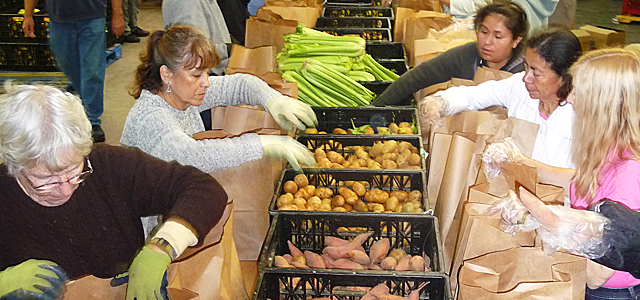In Santa Cruz County, 6,700 seniors – 42% of all seniors in the County – do not have enough income to meet their basic needs and are ineligible for help from public assistance programs like CalFresh. Those were among the findings of the UCLA Center for Health Policy Research, which found that nearly 1 in 5 adults over 65 in California — more than three-quarters of a million people — live in an economic no-man’s land, unable to afford basic needs.
According to the study’s lead author, “Many of our older adults are forced to choose between eating, taking their medications or paying rent. The state might be emerging from a recession, but for many of our elder households, the downturn seems permanent.”
Over three-quarters of a million (772,000) older Californians are among the “hidden poor” ― older adults with incomes above the federal poverty line (FPL) but below a minimally decent standard of living as determined by the Elder Economic Security Standard™ Index (Elder Index) in 2011. This study used the most recent Elder Index calculations to document the wide discrepancy that exists between the FPL and the Elder Index.
This study finds that the FPL significantly underestimates the number of economically insecure older adults who are unable to make ends meet. Yet, because many public assistance programs are aligned with the FPL, potentially hundreds of thousands of economically insecure older Californians are denied aid. The highest rates of the hidden poor among older adults are found among renters, Latinos, women, those who are raising grandchildren, and people in the oldest age groups.
Raising the income and asset eligibility requirement thresholds for social support programs such as Supplemental Security Income (SSI), housing, health care, and food assistance would help California’s older hidden poor make ends meet. This gap is especially wide in coastal counties like Santa Cruz where the cost of housing is one of the highest in the nation. Even if the FPL guideline was doubled it would still not be enough in most counties. California seniors making twice the FPL still need public benefits to make ends meet.
